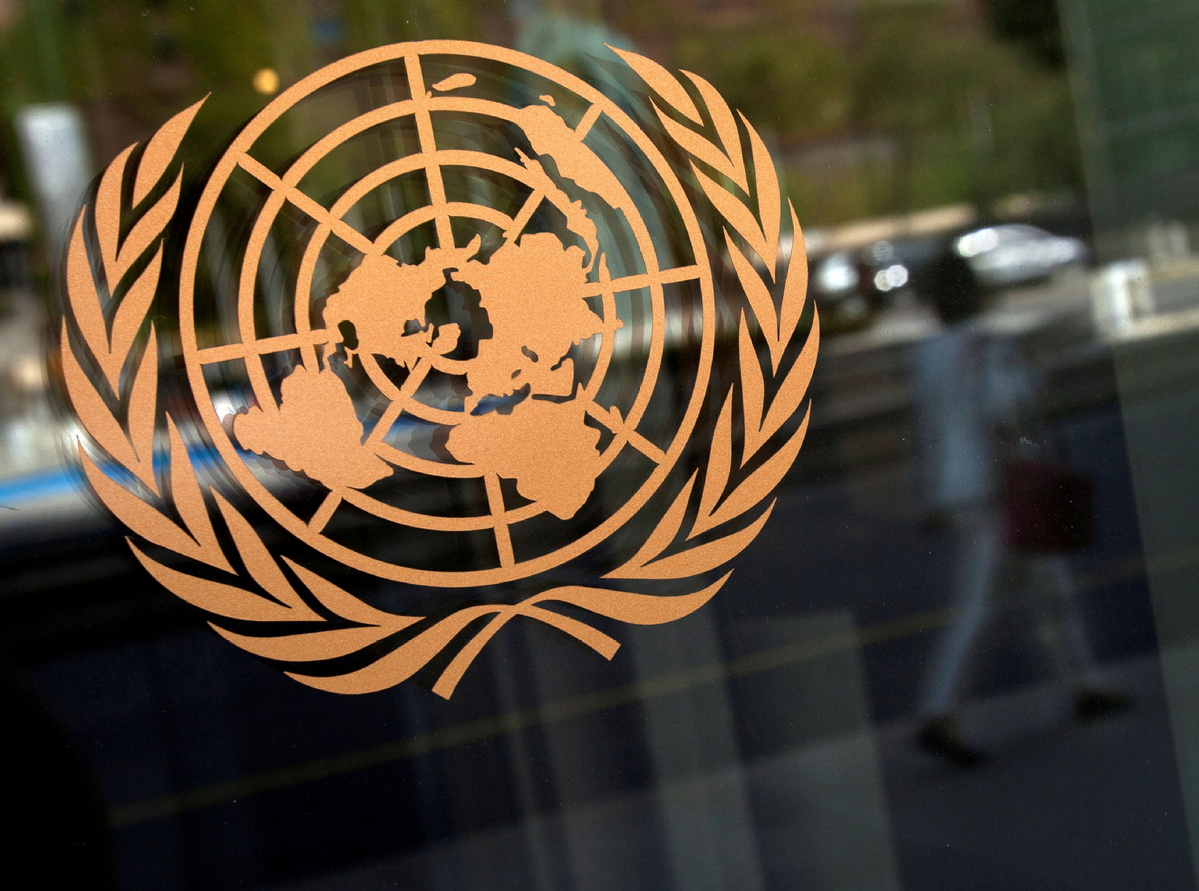At UN, China urges fulfilling nuclear pacts
By LIU YINMENG in Los Angeles | China Daily Global | Updated: 2021-09-28 11:00

The Chinese ambassador to the United Nations on Monday expounded on China's position regarding recent cooperation on nuclear submarines between "relevant countries" and urged them "to faithfully fulfill their international nuclear nonproliferation obligations".
Zhang Jun, China's permanent representative to the UN, told a Security Council high-level meeting on the nonproliferation of weapons of mass destruction that China opposes a double standard on nuclear-nonproliferation issues.
Both the Comprehensive Nuclear Test Ban Treaty (CTBT) and the Treaty on the Non-Proliferation of Nuclear Weapons (NPT) are important pillars of the international nuclear disarmament and nuclear-nonproliferation regime, the ambassador said.
The CTBT, a multilateral treaty that bans nations from carrying out nuclear test explosions, was adopted by the UN General Assembly in September 1996. The pact has yet to become an international law because eight countries designated as "nuclear technology holders" still need to sign or ratify it.
The NPT is an international treaty with the aim to prevent the spread of nuclear weapons and weapons technology. It opened for signatures in 1968 and entered into force in 1970.
With 191 states joining the treaty, it represents the "only binding commitment" in a multilateral treaty to disarmament by the nuclear-weapon states, according to the UN.
As part of the accord, states with nuclear weapons agreed to pursue nuclear disarmament and that they will not help nonnuclear states manufacture or acquire nuclear weapons. States without nuclear weapons agreed not to acquire nuclear weapons. All parties agreed that they can access nuclear energy for peaceful purposes.
"While promoting the early entry into force of the CTBT, the international community should also conscientiously safeguard the authority, universality and effectiveness of the NPT," Zhang said.
"All states should demonstrate a responsible attitude. China objects to a utilitarian approach to the NPT or the application of double standards thereto," he added.
Zhang's remarks came after the US, UK and Australia struck an agreement over nuclear submarines. In a trilateral security partnership that became known as AUKUS, the US and UK, both parties to the NPT, agreed to support Australia, a nonnuclear-weapon state, in developing nuclear-powered submarines.
"It's wrong of a scant few nuclear-weapon states to make high-sounding pronouncements about their commitment to the international nuclear-nonproliferation regime, while assisting nonnuclear weapon states in building nuclear submarines," Zhang said.
"Not only will it intensify the arms race to the detriment of the international nonproliferation regime as well as international and regional security and stability, it also runs counter to the spirit of the NPT," he said.
The ambassador called on the countries to "heed the call of the international community, faithfully fulfill their international nonproliferation obligations, and put in a greater effort toward regional peace and stability".
Zhang said the CTBT is an important milestone in humanity's quest for a world free of nuclear weapons. It has also become "a major pillar" of the international nuclear disarmament and nonproliferation system.
He noted "the volatile and challenging dynamics" of the current international strategic, security and stability environment, which underscores the importance of the treaty.
Zhang said Secretary-General António Guterres called for the formulation of a new peace agenda and new actions on issues such as reducing strategic risks in "Our Common Agenda". Promoting the early entry into force of the treaty "ought to be one of the many efforts to this end".
The envoy made four proposals on behalf of China to promote the CTBT's early entry into force.
First is the need to "firmly uphold multilateralism" and to create "an enabling security environment" for the treaty to take effect. All states should eliminate the root causes of the existence, proliferation and testing of nuclear weapons, said Zhang.
Second, the international community needs to support the objectives and purpose of the treaty, build on the strong political momentum for its entry into force, and promote the concept of a nuclear test ban so that it gains greater traction among people.
Third, countries need to preserve the international arms control regime, provide more robust institutional safeguards to bring the accord into force, and maintain the "integrity, authority and effectiveness" of the international arms control treaty system.
Fourth, the international community should push ahead with the preparation for the treaty's implementation and reinforce "a robust foundation of capacity" for its entry into force. It should focus on ensuring the "full technical readiness" for the operation of the verification mechanism once the treaty comes into the force.
China was among the first signatories of the CTBT and has conducted the fewest nuclear tests among all nuclear weapon states, the envoy said.
Since announcing the nuclear test moratorium in 1996, the Chinese government has "scrupulously upheld" the moratorium and has never wavered in its support for the treaty at the political level.
In its own way, China has made its due contributions to the entering into force of the treaty, to the preparation for its implementation, and to international cooperation on the treaty.
He reiterated that China "will not become an obstacle to the entry into force of the CTBT".
China will continue to work with all the other parties to continuously consolidate the international consensus on a nuclear test ban, contribute to bringing the treaty into force, and "make unremitting efforts" toward the complete prohibition and total destruction of nuclear weapons at an early date, the envoy added.
























